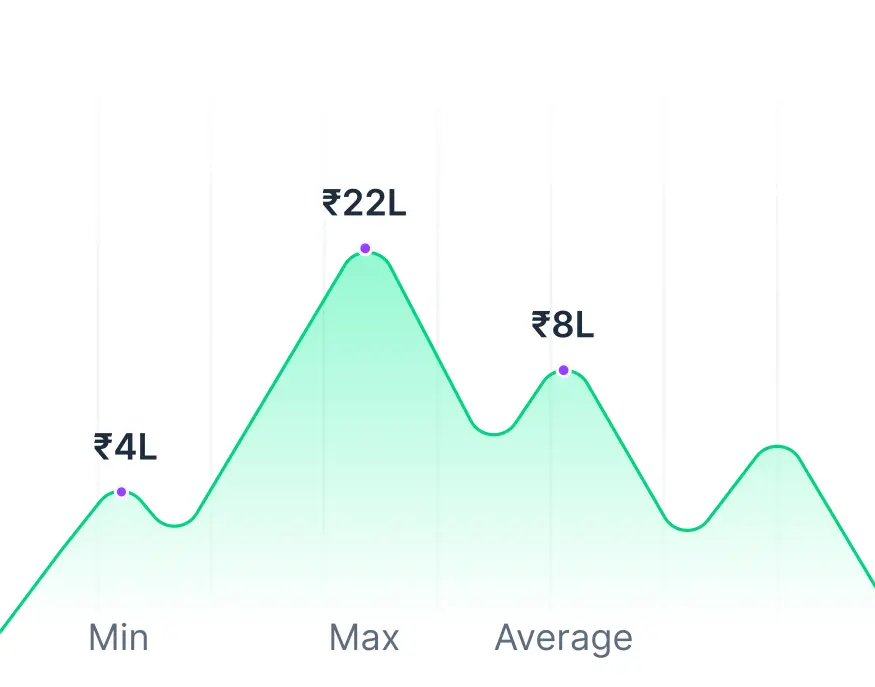Why Start a Career as a Data Analyst?
A career in data analytics is one of the most promising options in today’s job market. Data analysts are in high demand across industries such as finance, healthcare, e-commerce, and technology, as organizations need professionals who can make sense of vast amounts of information.
Companies rely heavily on data-driven insights to make strategic decisions, from improving customer experience to identifying market opportunities. This makes the role not just valuable but also central to business growth.
The field also offers steady career progression and competitive salaries, even at entry-level. With experience, data analysts can quickly move into senior positions or specialize in areas like predictive analytics or machine learning.
It’s also a great fit for individuals who enjoy problem-solving, logical thinking, and uncovering patterns in data. Beyond that, data analytics provides flexibility to transition into related roles such as data science, business analysis, artificial intelligence, or even leadership positions in analytics.
In short, becoming a data analyst is not just about getting a job—it’s about entering a career path full of growth, impact, and long-term opportunities.
How to become data analyst ? (a Step-by-Step Guide)
Many people ask, “How do I become a data analyst?” or “How can I become a data analyst without experience?” The process is easier than you might think if you follow a structured path. Below are the key steps to guide you on how to become a data analyst professional in demand.
Step 1: Learn The Essential Data Analysis Skills
To become a data analyst, start by mastering the core skills. These include:
Mathematics & Statistics – Learn probability, regression, and data interpretation.
Excel – A must-have for managing, cleaning, and analyzing datasets.
SQL – Essential for querying and managing databases.
Programming – Python or R is widely used for data manipulation and analytics.
Data Visualization Tools – Power BI, Tableau, or similar tools for storytelling with data.
Critical Thinking – Ability to interpret insights and support business decisions.
These skills form the foundation for becoming a good data analyst.
Step 2: Get Qualified in Data Analysis
If you’re wondering, “How do you become a data analyst with credibility?”—the answer lies in qualifications. While you can self-learn, enrolling in a data analytics course helps you gain structured knowledge and recognition. Courses often provide:
Industry-relevant curriculum
Guided projects
Hands-on case studies
Certification that adds weight to your resume
This qualification assures employers of your expertise.
Step 3: Practice Your Data Analyst Skills
Theory alone isn’t enough—you need real-time practice. Try:
Cleaning raw datasets
Building dashboards
Performing statistical analysis
Using Kaggle datasets for practice
Consistent practice makes you job-ready and builds confidence.
Step 4: Create A Data Analyst Portfolio of Projects
If you’re asking, “How can I become a data analyst employers trust?”—a portfolio is your answer. It showcases your practical abilities. Include:
Data cleaning and transformation projects
Interactive dashboards using Tableau or Power BI
SQL database queries and analysis
End-to-end analytics case studies
This portfolio acts as proof of your skills and increases your chances of landing interviews.
Step 5: Start Applying For Entry-Level Data Analyst Jobs
Once you have skills, qualifications, and a portfolio, begin applying for entry-level jobs. Tips:
Highlight skills and certifications on your resume
Network on LinkedIn and data-related forums
Apply for internships or junior analyst roles
Showcase your portfolio during interviews
This helps you transition smoothly into a data analyst career.
How do I Become a Data Analyst Without a Degree?
Many professionals ask, “How do I become a data analyst if I don’t have a degree?” The good news is you can enter this field without a formal qualification. You can:
Take online certifications
Build a strong portfolio of projects
Gain internships or freelance opportunities
Leverage skills in Excel, SQL, and visualization tools
Employers value skills and projects more than degrees in many cases.
How can I become a data analyst without experience?
Another common question is, “How do I become a data analyst without any prior experience?” The answer is by building practical exposure. You can:
Start with freelancing projects on Upwork or Fiverr
Participate in data hackathons
Work on open-source projects
Share your work on GitHub or LinkedIn
This practical exposure can compensate for a lack of professional experience.
FAQs
1. How many years does it take to become a data analyst?
On average, it takes 6–12 months with focused learning and practice to become job-ready.
2. What qualifications do you need to be a data analyst?
While a degree in statistics, computer science, or economics helps, certifications and practical skills are often enough to qualify.
3. What do you study to become a data analyst?
You study statistics, Excel, SQL, Python/R, and visualization tools along with business problem-solving skills.
4. Does a data analyst require coding?
Yes, basic coding knowledge in Python or R is highly recommended, though not mandatory for all roles.
5. Do data analysts make good money?
Yes, data analysts earn competitive salaries. In India, freshers earn around ₹4–6 LPA, and experienced analysts can make ₹10–20 LPA or more.







 The demand for data analysts is skyrocketing, making it one of the most rewarding career paths today.
The demand for data analysts is skyrocketing, making it one of the most rewarding career paths today. 















